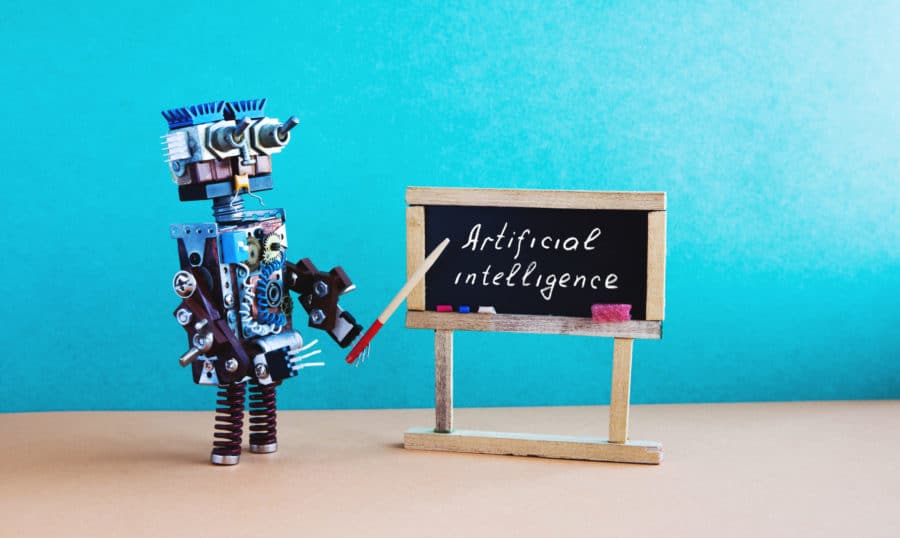
Artificial intelligence (AI) is a rapidly growing field of technology that has the potential to revolutionize the way we teach and learn.
The potential use of AI in education is immense. It can help to improve the quality and effectiveness of educational programs across all levels. But how exactly should it be applied to the classroom, and what are the benefits and drawbacks?
How is Artificial Intelligence Being Applied to Education?
AI-powered virtual assistants, chatbots, and personalized learning are some of the most promising applications of artificial intelligence in education.
Virtual assistants can help teachers to better manage classes while focusing more on teaching and connecting with students. Chatbots can also be used to provide students with administrative support.
Moreover, AI-enabled learning systems can be used to provide students with customized content based on individual needs, strengths, and limitations. All these applications have the potential to revolutionize the way we teach and learn in the future.
AI is also helping to create more efficient ways of assessing student performance. With AI-based assessment tools, educators can quickly identify areas where students need help or further guidance.
AI-based systems can be used to automate administrative tasks. This will make it easier for educators to focus on teaching instead of paperwork.
AI-powered educational technology can help teachers by providing insights into student learning patterns. This provides the opportunity to adjust teaching methods accordingly. This will help maximize the effectiveness for the benefit of students.
Artificial Intelligence can also be used to create more engaging and interactive content for students. This content can increase engagement and the student’s motivation while learning.
With AI, educators have the potential to create an entirely novel educational experience for students, tailored specifically for individual needs. This opens the doorway for more students reaching their full potential.
The Benefits of Using Virtual Assistants for Educators & Students
Virtual assistants are quickly becoming a valuable asset to educators and students. With the ability to provide real-time assistance, virtual assistants can help in a variety of key areas. For instance, providing guidance on coursework or scheduling meetings with teachers and classmates.
Virtual assistants are also becoming increasingly popular in classrooms. These chatbots use natural language processing technology to answer student questions, provide personalized advice, and even generate study plans tailored to each student’s needs.
With virtual assistant education, educators can save time while still providing students with the support they need.
Exploring the Possibilities of Personalized Learning Through Artificial Intelligence
Personalized learning through AI is becoming more widely used in today’s educational landscape. Many experts agree that it can help reduce dropout rates and improve student engagement.
This technology allows for a customized learning experience that is tailored to the individual learner, reducing discouragement, and enabling students to learn faster and more effectively.
AI-driven learning can be used to provide personalized feedback to students based on performance. Another use is to help teachers identify areas of improvement for students. It can also be used to create adaptive learning software that can conform its teaching methods based on the student’s progress and abilities.
The Risks & Challenges of Adopting AI in Education
While there are benefits for schools adopting AI technology, there are risks and challenges that must be taken into consideration. These include digital literacy issues, privacy concerns, and potential bias in the data used by AI tools. Other concerns include the consent from all parties towards the use of data, and the data security.
But possibly the greatest risk of all is the over-reliance on AI for teaching.
Educators must understand the implications of using AI-based learning systems to ensure that students receive an effective education.
The Promising Future of AI in Education
The future of AI in education looks promising. This will be facilitated by more companies developing innovative solutions that can benefit both educators and students. Additionally, more schools will begin to realize the benefits of buying into this new paradigm.
Artificial Intelligence technology is revolutionizing the education industry. It has the potential to dramatically transform the way we learn, teach, and assess.
With AI-powered tools and applications, educators can provide personalized learning experiences, while also making sure that teaching methods are effective. It also takes some of the burden off administrators in providing quicker answers to routine and frequently asked questions.
Even with the drawbacks in mind, schools will have a hard time arguing against the adoption of artificial intelligence, given the many benefits available.
